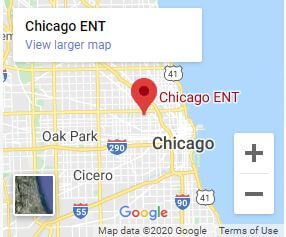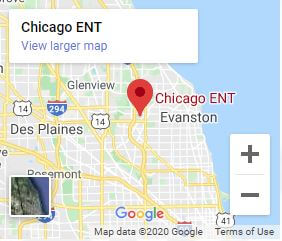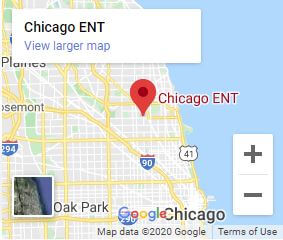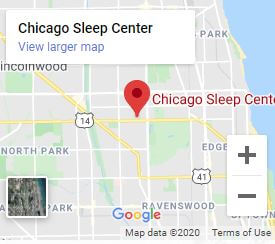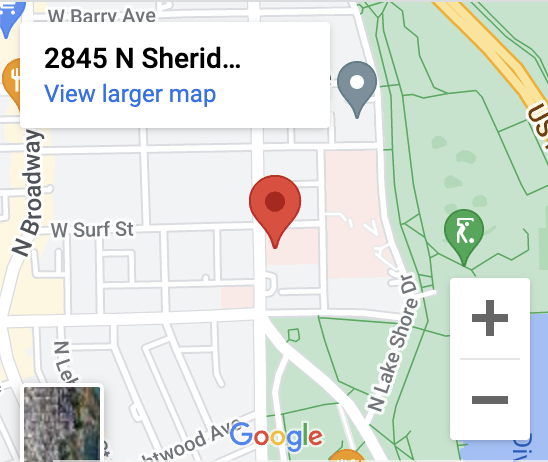Do you often feel like the world is moving all around you, even when standing still? Do you ever find that you lose your balance and can’t stay upright?
These are some of the symptoms of a condition called vertigo. Vertigo can be a semi-permanent or permanent condition depending on the cause.
If you have vertigo, you may feel like the room is spinning or whirling around you while you’re standing still. The false sensation can happen as you move your head or change body position, such as rising from a seat and turning in bed.
These sensations are brought on by disturbances in the brain or inner ear. Keep reading to learn more about vertigo!
What are the Symptoms of Vertigo?
Apart from feeling as though the world is spinning around you, other symptoms of vertigo are:

- Headache
- Nausea
- Vomiting
- Sweating
- A racing heartbeat
- Shortness of breath
- Ringing in the ears
- Loss of balance
- Hearing loss
- Unusual eye movements like jerking
- Hypersensitivity to sound and light
When you have vertigo, you may notice that you are unbalanced when walking. It may also feel like there’s something pulling you in one direction, or the room is tilting.
Causes of Vertigo
The cause of vertigo typically determines how long your symptoms will last and whether it’s permanent or not. Some of the common causes of vertigo include:
Benign Paroxysmal Positional Vertigo (BPPV)

BPPV occurs when tiny calcium crystals in your ear move around and affect the organs in charge of balancing. The result is vertigo or a whirling sensation, especially when you switch positions suddenly and in specific ways.
Older adults, people who have had head injuries, or patients who have undergone surgery are more likely to develop BPPV. Vertigo episodes recur if you have BPPV, but they’re usually brief and last for a few seconds to less than a minute.
Canalith Repositioning
Most times, BPPV resolves on its own. You can also treat it using canalith repositioning. During canalith repositioning, your ENT specialist will maneuver your neck and head to try and shift the crystals from the semicircular canals into the inner ear.
Doing this helps the crystals get reabsorbed. For many patients, canalith repositioning is often successful.
If the treatment works for you, your ENT specialist at Chicago ENT can show you how to perform the movements at home if the symptoms come back.
Meniere’s Disease

Meniere’s disease is an inner ear disorder caused by a buildup of fluid in the ear. The condition triggers repeated episodes of vertigo that can be intense, lasting several minutes to hours.
Many patients with Meniere’s disease with vertigo will also experience nausea and vomiting. After each episode, you may continue feeling a loss of balance for a few days.
Other symptoms of the chronic condition that generally affect one ear include a ringing in the ear or tinnitus and a feeling of fullness in the ear. If not treated promptly, Meniere’s disease can result in progressive hearing loss.
Although the condition is permanent, non-surgical treatments can effectively manage the symptoms in about 90 percent of patients.
Labyrinthitis
Nerves in your inner ear send signals to the brain about where to position the head. When you have labyrinthitis, the cochlear and vestibular nerve becomes inflamed, interfering with your ability to balance.
Having labyrinthitis can often lead to abrupt and severe vertigo if you move your head. The swaying feeling makes it hard to focus on tasks, stand up, or walk and may be accompanied by nausea, vomiting, and blurred vision.
Some people have hearing loss in one ear. Symptoms persist for days before gradually improving. Not seeking treatment increases your risk for permanent imbalance and hearing loss.
While most patients with mild balance issues recover with treatment, others take months or years to recover completely. If you have severe labyrinthitis, you may need vestibular physical therapy to help improve balance.
Vestibular Migraine

Migraine headaches coupled with vertigo could indicate a vestibular migraine. In addition to a whirling sensation and a severe headache, you may also have motion sickness and increased sensitivity to noise and light.
The duration of vertigo varies. However, most episodes last for a few minutes to several hours. Your ENT specialist may suggest preventative treatments for migraines to help with your vestibular migraine.
Head Injury
If you’ve received a hard blow to the head, you can suffer permanent or temporary damage to the inner ear, resulting in balance problems. Additionally, people with traumatic brain injury (TBI) mostly have balance issues.
Almost half of the patients with TBI have vertigo during their recovery. The part of the brain you injured and your injury’s severity will determine how it affects your balance.
Vertigo can be temporary or permanent, depending on the patient. Those who have suffered a head or neck injury might experience chronic or long-term vertigo.
Treatment may be a combination of medications and physical therapy. Although very rare, your ENT specialist may choose to recommend surgery.
When to Seek Help for Vertigo
You should seek emergency medical assistance if you have vertigo together with any of the following:

- Vomiting that won’t stop
- Fever above 100.4°
- Tingling or numbness
- Weakness in the leg or arm
- Double vision
- Passing out
- Chest pain
- Trouble speaking, seeing, hearing, or walking
Experiencing these symptoms with vertigo may be a sign of a medical emergency. See a doctor as soon as possible if this happens to you.
Do You Think You May Have Vertigo?

If you think you could have vertigo, the expert team at Chicago ENT can help. We’ll perform comprehensive diagnostic tests and physical and neurological exams to determine the cause of your vertigo.
With years of experience treating vertigo, our ENT specialists will develop a highly individualized treatment plan to help you take control of your condition.
Schedule your appointment at Chicago ENT in Chicago, IL, to get to the bottom of your vertigo symptoms!











